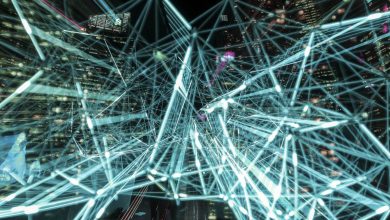How cyber security is paramount in the power sector
It is no surprise that cyberattacks are growing more sophisticated and common, hitting a wide range of high-profile targets. The repercussions are being felt by financial organizations, healthcare facilities, educational institutions, and government organizations. Even yet, most individuals are astounded to learn that the power and utility sectors have become a key target for nation-state agents. The concept may appear absurd initially, but threat actors can foresee the implications of such an assault and why certain industries are such a good target. That is why cybersecurity for power and utilities is critical.
Considering how reliant we are on the power infrastructure, it’s not difficult to imagine the terrible consequences of a massive long-term attack. Any assault that damages vital infrastructure or interrupts essential services must be remedied as soon as possible. However, even though these attacks increase across the country, many in the sector remain skeptical.
As technology advances, we’ve seen that cybercriminals look for new ways to exploit weaknesses. However, worldwide attacks against power and utilities have nearly doubled in the past few years. Furthermore, the attackers have boosted the capacity and pace of the attacks dramatically, making them far more efficient. Unfortunately, the power and utility industries are largely unequipped to meet these threats. Adequate security becomes ever more difficult to implement when threats evolve to accomplish more than just access sensitive data. Recent cyberattacks on the power sector have targeted operating systems and disrupted vital services.
This article will take you into detail about how cyber security is paramount in the power sector.
Cyber security is paramount in the power sector
Cyber attackers can manipulate the power sector to extort money or inflict uncertainty and disaster. Nation-state agents that earlier targeted government organizations are now forced to face better cybersecurity measures and may shift their focus to power and utilities in an attempt to attack an unprepared victim.
Easy Access
Hackers are looking for easier targets as primary targets such as banks, large corporations, government agencies, and the military tighten security to avoid the risks of mass cyberattacks. Power and utility companies typically operate on tight budgets and are mostly uninformed of the possibility of an attack. With few security solutions in place and an increasing number of access points, threat actors are likely to see these businesses as an easy target with a lot to lose.
Employees at power and utility companies sometimes receive little or no training on cybersecurity policies and techniques. It includes normal cyber hygiene procedures such as generating strong passwords, encrypting email, and developing complete cybersecurity for utilities.
A Wealth of Opportunity
Thousands of people rely on power and utility businesses in every given location. These businesses are also in charge of processing significant volumes of sensitive data. Unfortunately, this combination allows cybercriminals to launch assaults on IT and OT systems. Municipal utility attacks can result in:
- Outages on a large scale
- Water-polluted systems
- Large-scale data thefts affecting thousands of consumers and workers
- Critical infrastructure and vital networks have been damaged, and repairs might take months.
- Billions of dollars are wasted on an annual basis due to ransom demands and required maintenance.
IoT Growth
Vulnerabilities are discovered as power and utility firms employ modern technologies to simplify procedures. The internet of things (IoT) helps businesses gather data, get information, and improve productivity and safety. Unfortunately, it also creates a wide attack surface for malicious actors to exploit. A broad attack surface paired with limited resources to secure many endpoints puts power and utility businesses at risk. Furthermore, because this operational technology is still emerging, many risks have not yet been mitigated.
Limited Awareness of the Threat
Power and utility firms usually operate on tight budgets, which are monitored by employees who seldom engage in the organization’s operations. While these authorities are responsible for distributing cash for required security measures such as better cybersecurity for utilities, they are mostly unaware of the possibility of an attack.
COVID-19 Impact
Cyberattackers were primed to exploit a significant worldwide situation, and the epidemic presented an unfortunate opening. Utilities were not immune to the pattern of exploited vulnerabilities when the employers were compelled to work remotely. As the outbreak has continued, the number of cyberattacks against power and utility businesses increased dramatically. Attacks can originate from several sources, but the most serious risk is the possibility of nation-state attacks.
Types of Cyberattacks Launched on Municipal Utilities
Denial of Service
Denial of service (DoS) and distributed denial of service (DDoS) attacks prevent users from accessing critical networks. A DoS attack is carried out by a single attacking computer, whereas a group of attacking computers carries out a DDoS assault. When faced with DoS or DDoS attacks, companies cannot supply services during the ongoing onslaught. These assaults have major consequences for any firm, but the disruption of critical services can soon turn disastrous.
Ransomware
Power and utility firms manage and keep a large amount of sensitive information. They are also in charge of delivering key services and maintaining critical infrastructure. When attackers gain access to utility networks, they can hold important information or the capacity to supply services hostage until a substantial ransom is paid. There is no assurance that services will be restored when a ransom is paid.
Phishing
This well-known strategy is employed against energy companies in the same manner that attackers target personnel in major enterprises. In an attempt to acquire access to sensitive information or penetrate the network, attackers send emails to unsuspecting employees at all levels. Phishing is extremely successful in the utility industry because staff seldom receive the security training needed to identify such risks.
Providing employees with cyber security training online allows them to identify these threats and other red flags to eradicate vulnerabilities caused by human errors.
Conclusion
Cyberattacks on the power sector are rapidly becoming one of the country’s most prominent risks. Attacks show that the threat is genuine and that authorities and organizations can no longer disregard it. Cybersecurity is a vital component in safeguarding critical infrastructure.
An increase in cyber-attacks has increased the demand for cyber security professionals. If you want to become a cybersecurity professional, explore courses such as the Stanford course online. It will take your career to the next level as you will learn about computer networks and security, app security, cyberattacks and acquire relevant skills to help you get there.













